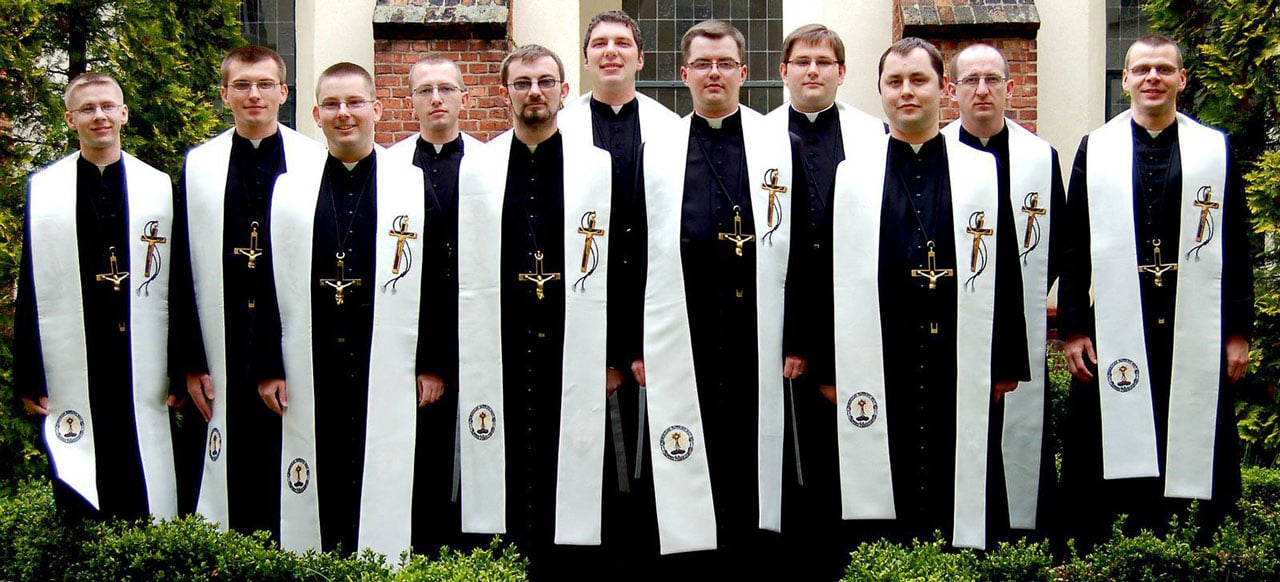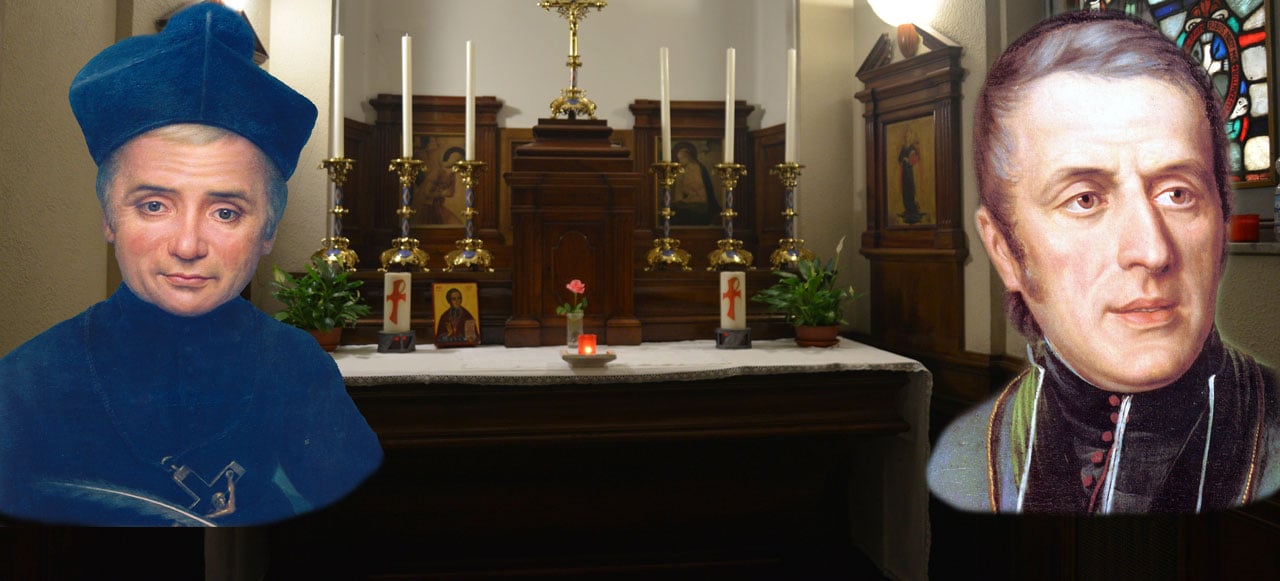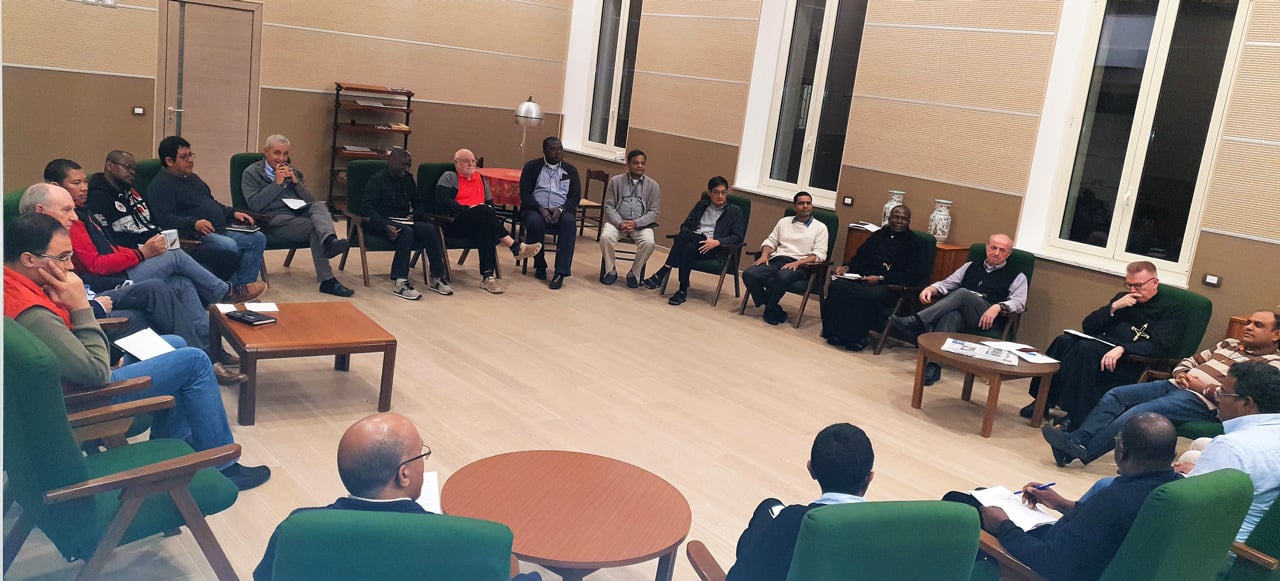Meditations to prepare for the anniversary of the first vows of November 1, 1818
Christ calls through us – Constitution 52
“Jesus never ceases to call people to follow him and to proclaim the Kingdom. Some are drawn to answer that call through the joy and generosity of our lives. We must lose no opportunity to let people see how urgent are the needs of the Church and the world and come to know the way in which our Congregation responds to those needs. We will also pray and have others pray that the Lord send labourers into his harvest.”
The formation team: “United by charity and animated by the same spirit, in proper accord of views and action, will assist the Superior in the progress of the work, lest, relying only on their individual judgment, they be mistaken and harm the common good.
They will constantly strive to form Christ in the clerics, with the help of his Immaculate Mother the Virgin Mary, to whose protection they will teach them to have confident recourse in everything.”[1]
Fr. Tempier was interested in recruitment and vocations all his life. He was a true father for the scholastics and seminarians, while being very demanding.
“Vocations are essential,” he said to Mgr, Arbaud, in a letter of 1825. “It is in the nature and order of things that the Congregation recruit in the countries in which it is established, if it does not want to be condemned to perish … lest a Congregation be condemned to be chained in some way within its cradle, without ever being able to extend its branches”[2]
Fr. Tempier was above all an outspoken witness by his life and the life of his community.
The novice, Collin, testifies to this, “I love my brothers … I get excited about the practice of virtue through the admirable examples they give me …” [3]“Your absence leaves a ‘je ne sais quoi’, a void which can only be filled by you. Not everyone has the skill, the tact, to lead a community.”[4]
In 1820, while he was master of novices at Laus, Father Tempier wrote, “I am ever more delighted with the community. They all grieve me by stripping everything they have in their rooms… this being necessary … to put everything in common. Brother Ignatius[5] wants to be totally engaged as a full part of the family.”[6]
When he was Superior of the major seminary, he knew how to create an atmosphere of collaboration and fraternal charity. The seminarian, Dassy, who wanted to join the Congregation, could write that what attracted him to religious life, despite its harshness, was “this union, this charity that all the members of a religious community cherish – and especially your community which leads you to place others ahead of you. What always strikes me is this peace of soul, this unalterable joy, which becomes a sharing among those who have only God for their father and Mary for their mother.”[7]
The atmosphere that reigned in the novitiate at Laus encouraged novice Marcou to write to seminarian Guibert. Upon receiving this letter from his friend, Guibert decided to enter the Congregation. “Oh! my dear friend, if I were not afraid of appearing suspect, I would tell you about the happiness that we enjoy in our holy house; I would tell you about the spirit of our institute […] in a word that we have only one heart and one soul …”[8]
Father Tempier understood and helped young people in formation; he has a “discernment of souls,” says Fr. Fabre in the obituary. In 1823, Father Bourrelier would speak of “the admirable prudence” of Father Tempier that helped him to persevere in his vocation. Or Father Gardidier in 1858, “I am writing to this good father who has done me so much good and whom I love and venerate like my real father …” All this being said, Father Tempier was, above all, a true educator: “I will not lack charity or goodness, but I will be exacting for the accomplishment of their duties,” he wrote to the Founder, when the latter had sent him scholastics for the seminary, in 1835.[9]
———————————–
We invite you to take time of prayer for Oblate vocations, for Oblates in first formation and their formators, to reflect on our witness, as those who call. We can also reconsider the CC&RR on Formation.
[1] CC & RR. Texte de 1853 – « l’équipe de formation. »
[2] Lettre du P. Tempier à Mgr Arbaud, évêque de Gap, lettre du 16 novembre 1825, collection Ecrits oblats II,2 Rome 1987. p65.
[3] Lettre de Collin au Fondateur de décembre 1820, collection Ecrits oblats II,1 Rome 1987, p 38.
[4] Lettre de Collin au P. Tempier du 1e novembre 1821, collection Ecrits oblats II,1 Rome 1987, p 41.
[5] Ignace Voitot est le premier novice coadjuteur de la Congrégation.
[6] Lettre du P. Tempier au Fondateur du 9 décembre 1820, collection Ecrits oblats II,1 Rome 1987, p 39.
[7] Collection Ecrits oblats II,1 Rome 1987, p 57
[8] Lettre de Marcou à Guibert, collection Ecrits oblats II,1 Rome 1987, p 38.
[9] Collection Ecrits oblats II,2 Rome 1987, pp.150, 153-156


